Editorial Note: The following is reprinted with permission from Eleanor Skelton’s blog. It was originally published on June 17, 2014.
There was once was a little girl, raised in the Village.
The Village was a utopia, walled off for protection and insulated from the world. Even the families in the girl’s section of the Village did not see each other very often, but lived peaceably, like hermits, in accordance with the Code.
When the girl grew to be a maiden, sometimes she crept through cracks in the wall and explored the countryside. She gradually even made friends with the woodland folk, discovering new ballads and gypsy dances banned in the Village.
One day, the elders of the Village told the girl that absolute obedience was the only way to honor her parents and the Code. But the girl had dreams, and this meant soul death.
So one night the girl left the Village forever.
Her friends on the outside helped her travel to the coast, where she built a lighthouse with bricks and mortar and timber they brought. That section of the coast was so rugged that the deaths on its rocks were legend. Other attempts to build lighthouses had not survived.
The girl maintained it for years, weathering many storms. Her friends visited often to encourage her and the prosperity of the lighthouse, but sometimes she was lonely. Her friends started to call her Lighthouse, shortened to Light.
One friend was a girl-pirate who was once raised in the Village like her, but they had met beyond the walls.
Another village girl had become a spy for a local Baron. She took shelter in the lighthouse and lived with Light for many moons.
All three of them knew an older girl who escaped a failed utopia several years before. This girl had been cursed by her own Elders and turned into a mermaid, forever chained to the waves and spume. She shared the birth name of the girl-pirate.
The friends often wondered about their kinsmen in the Village, and hoped someday many more could be free from the well-meaning tyranny of the Elders. The four swore a solemn pact against injustice in the land.
A cyclone rolled across the waters one night, spewing hailstones like vomit. The lighthouse girl manned the tower, keeping the light alive. In her telescope, she spied the signal of a small boat foundering on the waves. Two passengers, one with gold hair and one with the hair of a raven, rowed and bailed water to no avail.
Despite the peril, the three friends, followed by the mermaid, took a larger ship. They rode out toward the lost girls, just before their rowboat crashed against the rocks.
Light, the girl-pirate, the spy, and the mermaid embraced the lost girls on the beach and welcomed them to safety. Light helped them to warm inside by the fire and dry their clothes. The lost girls told the friends that they fled another section of the Village, inspired by their love for one another, because their Elders had banned their friendship.
The four friends all knew the value of friendship, and told the lost girls to stay together, no matter what the Elders said, and to explore their newfound freedom.
Soon the spy-girl left on a clandestine mission for the Baron, and couldn’t send letters to the lighthouse girl.
The girl-pirate took the lost girls rafting, teaching them how to navigate currents and giving them sea legs.
Light helped the lost girls find a trade in town with a basket-weaver, but their spirits were wild and young, and they joined a band of traveling gypsies, squandering their earnings on trinkets.
Midsummer gales brewed out in the gulf, and the lighthouse was empty again except for Light. She was lonely once more, yearning for her old friends and for new refugees from the Village. She often visited the mermaid down in the tidal pool on calm, starlit evenings to plan new adventures.
One day, the girl-pirate came to the lighthouse girl and said she couldn’t stay on land anymore. She was bound for faraway oceans and adventures far from the Village.
Light hugged the pirate and cried. They walked down to the docks together.
Light told the girl-pirate how much she had learned from her. She knew how to tie sailor’s knots. She could brew herbal mushroom tea from the Orient. She could debate the Elders now if they confronted her and told her to tear down the lighthouse.
Deep in her heart, Light knew how much the pirate yearned for the sea, how the land was ebbing away at her friend’s spirit.
The lighthouse girl said the girl-pirate needed to sail. It was time. And she understood.



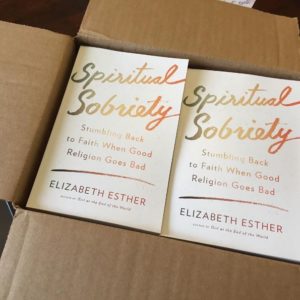
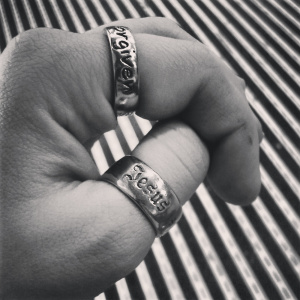
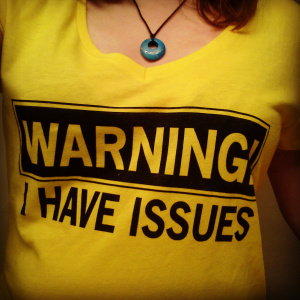

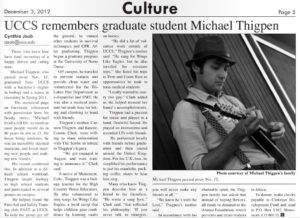
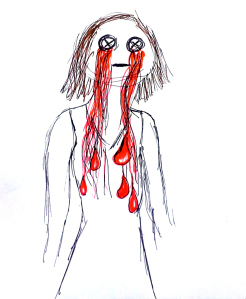 I couldn’t stop crying. I cried between every class, couldn’t focus on assignments and exams, took naps on the couch in our campus newspaper office and let the tears roll down.
I couldn’t stop crying. I cried between every class, couldn’t focus on assignments and exams, took naps on the couch in our campus newspaper office and let the tears roll down.